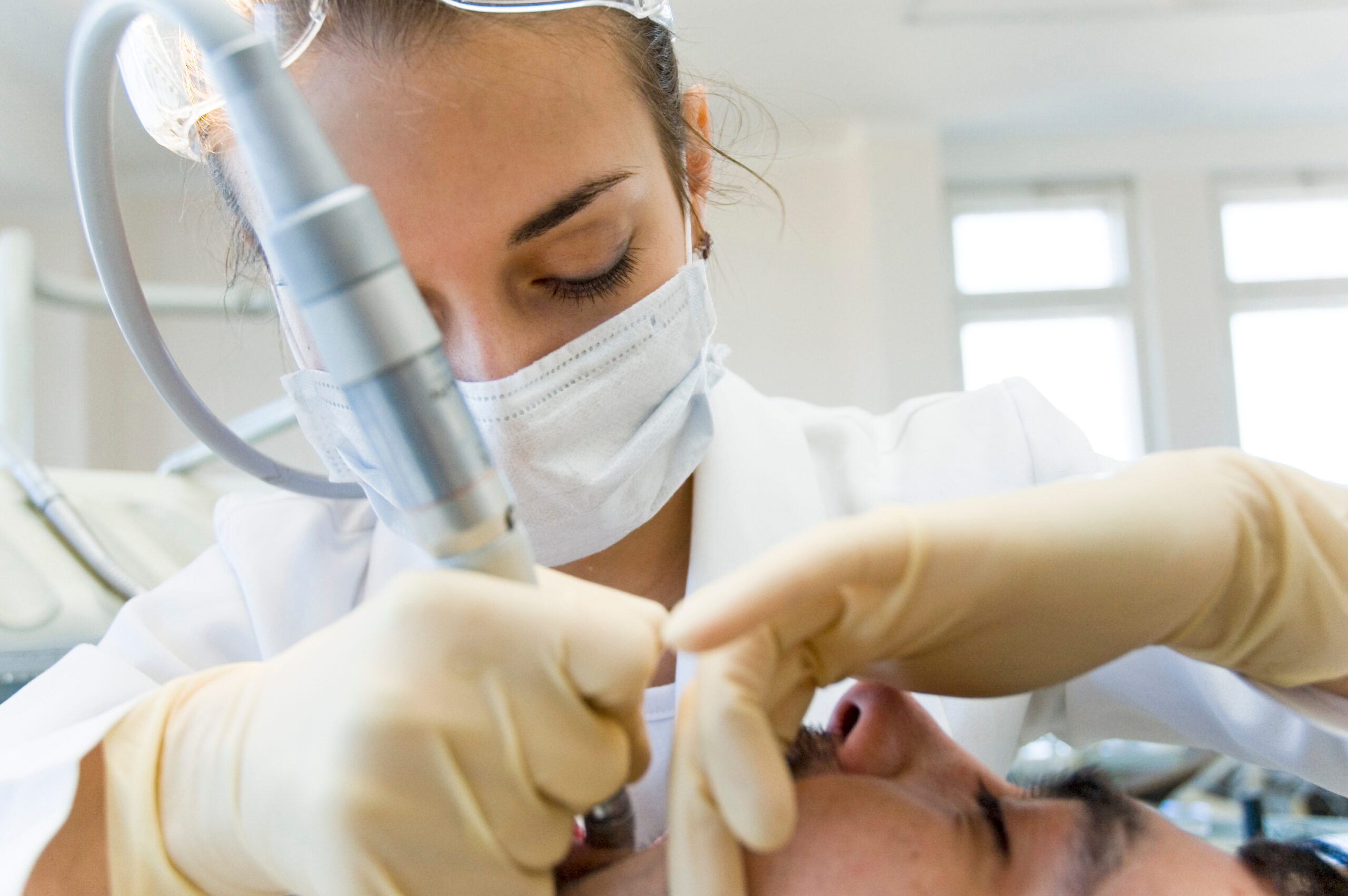Many individuals become anxious and fearful just thinking about going to the dentist. Dental fear is a widespread problem that prevents people from receiving essential dental care. Sedation dentistry is an option recommended by dentists in Legacy to make dental treatments more comfortable.
Let’s learn more about what sedation dentistry is, how it works, the benefits it provides, and who can benefit from it.
A Comprehensive Guide to Sedation Dentistry
Sedation dentistry, often known as sleep dentistry, is a field that employs medicine to assist patients to rest while having dental treatments performed. This approach enables patients to get the necessary dental treatment while minimizing the inconvenience, worry, and distress associated with dental appointments. Depending on the patient’s expectations and the treatment being performed, sedation can range from mild to deep sedation.
Types of Sedation
Nitrous Oxide (Laughing Gas)
Nitrous oxide is an invisible gas that is inhaled through a mask. It causes exhilaration and relaxation, making patients feel more at ease throughout dental operations. The effects fade quickly once the gas is discontinued.
Oral Sedation
This entails taking prescription medicine orally before the dental visit. Depending on the dosage, it might cause mild to moderate drowsiness. Patients are awake yet calm.
Intravenous (IV) Sedation
This type of sedation, delivered through an IV line, allows for precise control over the level of sedation. Patients may remain conscious but have little memory of the procedure.
General Anesthesia
General anesthesia is reserved for complex dental surgeries and renders the patient completely unconscious. It is typically used for extensive oral surgery or for patients with a severe phobia.
Dental Sedation Advantages
-
Reduced Anxiety
The primary advantage of sedation dentistry is that it reduces dental anxiety and fear. This can make dental appointments much more manageable for people who might otherwise avoid necessary care.
-
Pain Management
To ensure that patients experience as little pain or discomfort as possible during procedures, sedation can be used in conjunction with local anesthesia.
-
Time Efficiency
Dentists can complete more work in a single visit with sedation, reducing the need for multiple appointments.
-
Memory Suppression
Patients who are anxious about going to the dentist near you frequently appreciate the fact that they may not remember the details of the procedure due to the amnesic effects of certain sedatives.
-
Improved Dental Health
Finally, sedation dentistry can improve overall dental health by encouraging people to seek regular care and address issues as soon as they arise.
Who Can Benefit from Sedation Dentistry?
Sedation dentistry in Walden can benefit a wide range of patients, including those who:
- Suffer from anxiety or fear.
- Need a complicated or lengthy procedure.
- Have a sensitive/overactive gag reflex.
- Have special needs.
- Cannot sit stiff in the dentist’s chair.
Do Sedation Dentistry Procedures Have Any Side Effects?
The particular side effects of sedation dentistry might vary depending on the type of sedation utilized and the response of the individual patient. Here are some of the potential negative effects of several forms of sedation dentistry near you
Local Anesthesia (Topical or Injectable)
Common side effects: Local anesthetic is often used to numb the region where the dental procedure is being performed. Temporary numbness, tingling, or a “fat lip” sensation are common side effects that usually fade as the anesthetic wears off.
Rare side effects: In rare cases, individuals may develop an allergic response to the anesthetic. Nerve damage is another uncommon but possible consequence.
Oral Sedation
Common side effects: Oral sedatives, which are often taken as tablets, can produce drowsiness, dizziness, and poor coordination. These symptoms may last for several hours following the surgery.
Rare side effects: Although allergic responses and unexpected side effects are possible, they are uncommon. It is essential to inform your dentist about any sensitivities or medication you are taking.
Nitrous Oxide (Laughing Gas)
Common side effects: Nitrous oxide has been considered to be harmless, with few negative effects. Common adverse effects include dizziness, nausea, and headache, which normally go away once the gas is halted.
Rare side effects: Some people may develop side effects such as vomiting, increased perspiration, or trouble breathing, however, this is extremely rare.
Intravenous (IV) Sedation
Common side effects: IV sedation can cause sleepiness, grogginess, and procedural memory gaps. A brief reduction in blood pressure or respiratory rate may also occur in patients.
Rare side effects: Serious risks are uncommon, although they might include allergic reactions, infection at the IV site, or breathing or heart rate issues.
General Anesthesia
Common side effects: General anesthesia has higher risks and negative effects than other types of sedation. Patients may have grogginess, nausea, and vomiting following surgery.
Rare side effects: More serious risks of general anesthesia include respiratory difficulties, heart problems, and allergic responses. These problems are uncommon, but they can be fatal.
Precautions to Follow Beforehand
Several steps must be taken prior to any dental treatment, especially those involving anesthesia, to ensure your safety and the effectiveness of the treatment. Here are a few things to keep to take to heart before heading into your dental appointment:
- Always follow your dentist’s pre-operative instructions.
- Inform them of your medical history and medications.
- Adhere to fasting instructions if required.
- Don’t smoke and drink.
- Consult your dentist about sedation options.
- Ask questions and express your concerns.
- Wear comfortable clothing.
- Arrange for a designated driver.
Relieve your Dental Anxiety and Experience Gentle and Quality Care with our Team
We recognize that dental anxiety may be a serious problem for many patients at Walden Dental Wellness.. Our team is dedicated to providing compassionate and quality dental care, making your visit as stress-free as possible. Your oral health and well-being are our top priority, after all.
Send us an email or call today!

